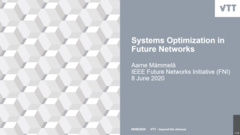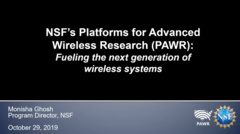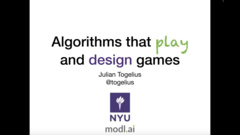Protecting Internet Traffic: Security Challenges and Solutions ? IEEE Internet Initiative Webinar
This webinar reviews research on internet traffic security guidelines and best practices. The recently published white paper (link below) of the same name provides the platform for the webinar.
The authors of the white paper detail security mechanisms necessary for consideration, at the manufacturing design phase, leading up to deployment of devices to internet service providers and end users. The authors assert that a thorough study on protecting internet traffic does not yet exist, and propose, based on their findings, that existing technology is not yet sufficient to meet the goal of protecting internet traffic. The best practices presented are centered around countering and preventing malicious activity. By setting up a secure network with industry standard security protocols, the risk and potential legal liabilities associated with an unsecured network can be proactively addressed.
Download the white paper: https://internetinitiative.ieee.org/images/files/resources/white_papers/protecting_internet_traffic_may_2017.pdf
Presenters
Jared Bielby, Netizen Consulting
Jared is an active consultant and project manager for initiatives in digital culture, information ethics and internet governance and is the founder and Editor-in-Chief of The Freelance Netizen. He currently serves as Co-Chair for the International Center for Information Ethics and editor for the International Review of Information Ethics. Jared moderates IEEE's Collabratec Internet Technology Policy community (IEEE-ITP) where he manages several projects for IEEE's Internet Initiative. He also chairs the IEEE GIECDAS subcommittee on Classical Ethics in Information & Communication Technologies.
Mikaël Dautrey, Partner at ISITIX
Mikaël Dautrey graduated from Ecole Polytechnique – Palaiseau, France - in 1995. He holds a Master in Computer Sciences from Télécom Paris Tech. He has been a Partner at ISITIX, a small consulting firm operating in the field of IT Infrastructure Management and Security, since 2002. ISITIX has successfully assisted many small to medium fast-growing businesses in their IT infrastructure strategy. Prior to working for ISITIX, he served as a business analyst and sales engineer for TelCo in France. He was part of SFR regulatory department when the French Telecommunication market was deregulated in 1997, working both on building the local loop deployment strategy and on the valuation of Telco interconnection pricing. Current interests include Internet regulation, IT security and distributed computing environment.
Sukanya Mandal, IEEE member and a data science professional
Sukanya is passionate about Artificial Intelligence, Machine Learning, Deep Learning, Natural Language Processing, Internet of Things, Internet Governance and Data Governance and spends most of her time researching, learning and experimenting on these topics. An avid internet user, she cares about causes like cybersecurity, universal internet access, ethical technology, Women in Engineering/STEM, technology education and a seamless world of human - technology coexistence. She likes writing blogs and has published blog post on blogging platforms like ODSC and C# corner. Recently she has published white papers under the umbrella of IEEE Internet Initiative namely “Protecting Internet Traffic: Security Challenges and Solutions” and “Internet of Things Security Best Practices”. She holds a Bachelor of Technology (B.Tech) degree focused in Electronics and Communication Engineering.
Jay Wack, Recognized SME in cryptography, key management and digital currency
Jay Wack has over 45 years in the electronic security industry. He has been awarded over a dozen U.S. patents in the areas of cryptography and security product design. A strong supporter of standards and an active participant in ANSI, ISO, IEEE, and CIGRE working groups.
Ali Kashif Bashir, University of the Faroe Islands
Ali Kashif Bashir is an Associate Professor of Department of Science and Technology, University of the Faroe Islands, Faroe Islands, Denmark. In the past, he has held positions at Osaka University, Japan, Nara National College of Technology, Japan, National Fusion Research Institute, Korea, and Korea Electric Power Co. Ltd. He received his Ph.D. in Computer Science from Korea University. He is also a research consultant on international projects and an editor of the Journal of Computer Networks, IEEE Access, and Science and Education Publishing. He has given many invited talks across the globe and has chaired numerous conference sessions. He is a senior member of IEEE. He is serving as Editor-in-Chief of IEEE Internet Policy and IEEE Future Directions on Ethics and Policy in Technology Newsletters. His research interests include: cloud computing (NFV/SDN), network virtualization, IoT, network security, wireless networks, etc.
Nagender Aneja, Universiti Brunei Darussalam
Nagender Aneja is Senior Manager at the Innovation and Enterprise Office of Universiti Brunei Darussalam and is a PhD Student at YMCA University of Science and Technology, India. His work experience includes ten years teaching in engineering institutes and five years in industry at CPA Global working for the Microsoft Patent Services Team. He is trained in US Patent Law and his work involves analyzing technical inventions for filing patent applications and assisting the University to commercialize the patents. His research areas are Ad-hoc Social Network, Security and Privacy in Computer Network, and Data Analytics.
This webinar reviews research on internet traffic security guidelines and best practices. A recently published white paper of the same name (link below) provides the platform for the webinar.
The authors of the white paper detail security mechanisms necessary for consideration, at the manufacturing design phase, leading up to deployment of devices to internet service providers and end users. The authors assert that a thorough study on protecting internet traffic does not yet exist, and propose, based on their findings, that existing technology is not yet sufficient to meet the goal of protecting internet traffic. The best practices presented are centered around countering and preventing malicious activity. By setting up a secure network with industry standard security protocols, the risk and potential legal liabilities associated with an unsecured network can be proactively addressed.
Download the white paper: https://internetinitiative.ieee.org/images/files/resources/white_papers/protecting_internet_traffic_may_2017.pdf
 Cart
Cart Create Account
Create Account Sign In
Sign In






Comments
Internet
to watch